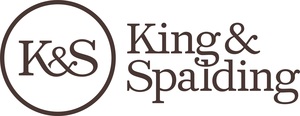WASHINGTON, Jan. 2, 2024 /PRNewswire/ -- The Coalition for Fair Trade in Shopping Bags (the "Coalition") is pleased with the preliminary determinations by the United States Department of Commerce ("Commerce") that imports of paper shopping bags into the United States from Cambodia, China, Colombia, India, Malaysia, Portugal, Taiwan, Turkey, and Vietnam are being sold at less than fair value (commonly termed "dumping"). Commerce's investigations concerning these nine countries cover paper shopping bags with handles of any type, whether printed or unprinted. Paper shopping bags, which often are used to carry items purchased from a retail establishment or restaurant, typically are made of kraft paper but can be made from any type of paper material.
In its preliminary determinations, Commerce concluded that imports of paper shopping bags from each of the nine countries are being unfairly traded. In particular, Commerce found that imports are being sold at dumping margins ranging in excess of 248 percent in some cases, with the extent of dumping varying by producer. This means that U.S. importers of paper shopping bags from these countries will now have to begin paying cash deposits to U.S. Customs and Border Protection ("Customs"), based on the value of their future imports. For example, where a particular supplier has a dumping margin of 60%, for every $100 of paper shopping bags imported from that supplier, importers will now have to begin paying $60 to U.S. Customs as cash deposits for future dumping duty liability. These deposits are required for imports of shopping bags on or after January 3, 2024. In addition, Customs will require deposits on bags imported since October 5, 2023 from China, Taiwan, Vietnam, and from certain suppliers from Cambodia.
A summary of the country- and company-specific preliminary margin determinations is available on Commerce's website at https://www.trade.gov/preliminary-determinations-ad-investigations-certain-paper-shopping-bags-multiple-countries.
Commerce also is investigating whether imports of paper shopping bags from China and India are being subsidized by their governments. On November 6, 2023, Commerce published preliminary determinations in those parallel investigations, finding that imports of paper shopping bags from China and India are subsidized at rates ranging from 2.37 percent to 144.03 percent of the import value. Commerce's final determinations in both the subsidies and antidumping investigations are expected by May of 2024.
The Coalition is represented in these actions by the law firm King & Spalding LLP. "The Commerce Department preliminarily has determined that, in fact, paper shopping bags are being exported to the United States at less than fair value from all nine countries under investigation," said Mike Taylor, a partner in the law firm of King & Spalding. "We appreciate the vigorous enforcement efforts by Commerce to ensure fair competition for all U.S. producers of paper shopping bags."
The Coalition intends actively to continue monitoring imports for unfairly traded paper shopping bags from other countries, and the Coalition also plans actively to coordinate with U.S. Customs to ensure that importers fully comply with their new obligations. The importation of subject paper shopping bags without the payment of antidumping and countervailing cash deposits and duties may result in severe civil or criminal penalties.
About King & Spalding
Celebrating more than 130 years of service, King & Spalding is an international law firm that represents a broad array of clients, including half of the Fortune Global 100, with 1,300 lawyers in 23 offices in the United States, Europe, the Middle East and Asia. The firm has handled matters in over 160 countries on six continents and is consistently recognized for the results it obtains, uncompromising commitment to quality, and dedication to understanding the business and culture of its clients. More information is available at www.kslaw.com.
SOURCE King & Spalding

WANT YOUR COMPANY'S NEWS FEATURED ON PRNEWSWIRE.COM?
Newsrooms &
Influencers
Digital Media
Outlets
Journalists
Opted In


Share this article